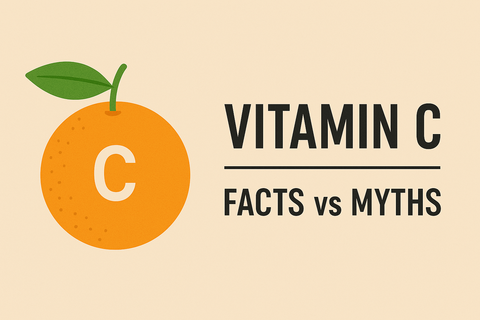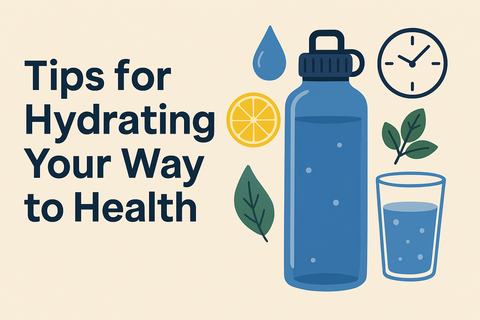Vitamin C, also known as ascorbic acid, is a household name when it comes to immune health. But amidst the widespread popularity, a cloud of myths and misconceptions often obscures the actual science. Let's delve into the world of Vitamin C and separate the facts from the fiction.
Myth 1: Vitamin C can prevent or cure the common cold.
Fact: While Vitamin C is a powerful antioxidant and plays a role in immune function, it's not a magic bullet against the common cold. Studies suggest that regular Vitamin C supplementation may slightly reduce the duration and severity of colds, but it won't prevent them altogether. It's more effective for those exposed to short periods of intense physical stress.
Myth 2: The more Vitamin C you take, the better.
Fact: While Vitamin C is water-soluble, meaning excess amounts are typically excreted in urine, taking extremely high doses can lead to side effects like diarrhea, nausea, and abdominal cramps. The recommended daily intake varies, but exceeding it significantly won't necessarily provide extra benefits.
Myth 3: All Vitamin C supplements are created equal.
Fact: Vitamin C supplements come in various forms, including ascorbic acid, calcium ascorbate, and liposomal Vitamin C. While ascorbic acid is the most common and cost-effective, some individuals may find other forms easier to digest or absorb. Look for reputable brands and consider your individual needs.
Myth 4: Citrus fruits are the only good source of Vitamin C.
Fact: While citrus fruits are excellent sources of Vitamin C, many other foods contain even higher amounts. These include bell peppers (especially yellow), kiwi fruit, strawberries, broccoli, and kale. A varied diet rich in fruits and vegetables can easily meet your Vitamin C requirements.
Myth 5: Cooking destroys all the Vitamin C in food.
Fact: Vitamin C is indeed sensitive to heat and light. However, not all cooking methods are equally destructive. Steaming, stir-frying, and microwaving can preserve more Vitamin C than boiling. Also, storing fruits and vegetables properly, in cool and dark places, will help to retain their vitamin C content.
Myth 6: Vitamin C is only important for immune health.
Fact: Vitamin C plays numerous roles in the body beyond immune function. It's essential for collagen synthesis, wound healing, iron absorption, and protecting cells from damage caused by free radicals. It's also vital for healthy skin, gums, and blood vessels.
Myth 7: You need to take Vitamin C supplements daily.
Fact: If you consume a balanced diet rich in fruits and vegetables, you may not need daily Vitamin C supplements. However, certain individuals, such as smokers, those with limited diets, or those with specific health conditions, may benefit from supplementation.
Key Takeaways:
- Vitamin C is an essential nutrient with diverse health benefits.
- It's not a cure-all for colds, but it plays a role in immune support.
- A varied diet rich in fruits and vegetables is the best way to obtain Vitamin C.
- Consult with a healthcare professional before taking high doses of Vitamin C supplements.
By understanding the facts about Vitamin C, you can make informed choices about your diet and supplement use, ensuring you reap the full benefits of this vital nutrient.



Comments (0)
There are no comments for this article. Be the first one to leave a message!